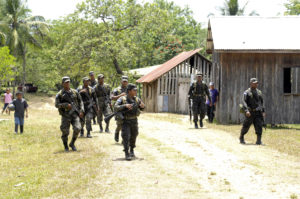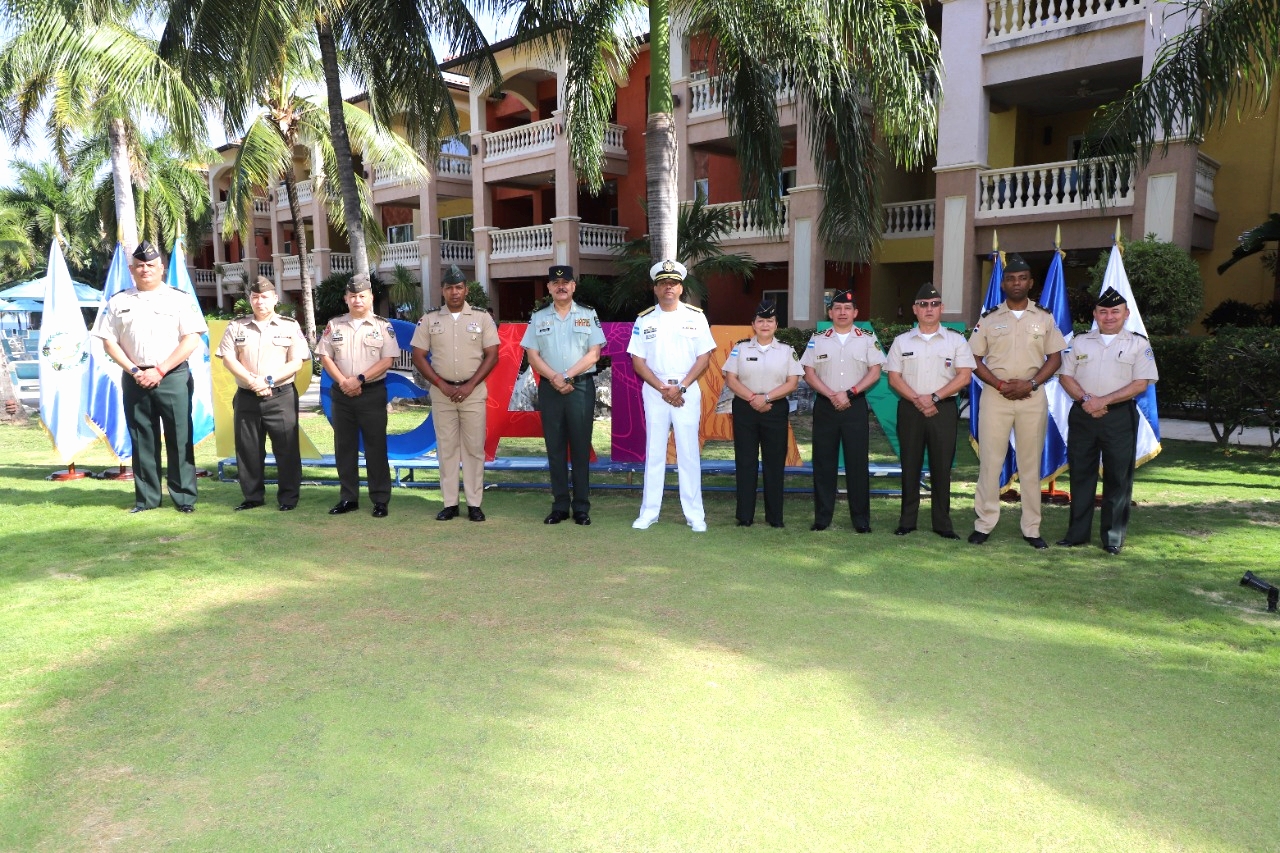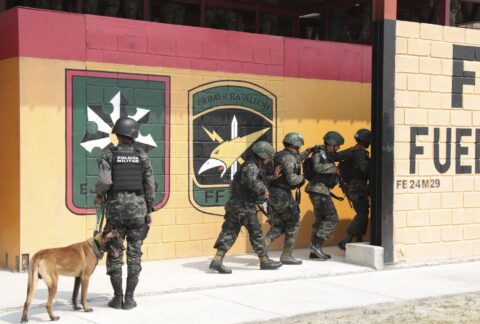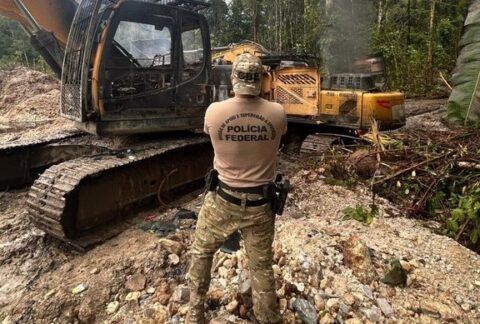The Central American Armed Forces’ (CFAC) Executive Committee held its 58th ordinary session, June 28-July 1, in Bay Island department, Honduras.
CFAC is a military cooperation organization created in November 1997. It is made up of El Salvador, Guatemala, Nicaragua, Honduras, and the Dominican Republic, which joined in 2007.
“Within CFAC, working meetings are held in which existing threats in the Central American region are addressed, analyzed,and compared,” Colonel Luis Alfredo Escobar García, the Guatemalan Army’s representative to CFAC, told Diálogo. “There are six areas of work that define thedynamics of CFAC’s agenda. One of these areas is confronting emerging threats.”
Agreements against threats
CFAC’s main objective is to combat drugand human trafficking head-on. Due to the increase of international organized crime activities in the region, the member countries signed several agreements, including strengthening border patrols among El Salvador, Guatemala, Honduras,and Nicaragua.
“We have already approved the annual planning for 2023 for task forces patrols, in order to counteract the actions of criminal groups,” Army Colonel Klaus Werner Korte Padilla, representative of the Honduran Armed Forces to CFAC, told Diálogo.
The show of force on the borders, in addition to the fight against organized crime, will bring together the armies of participating countries, with the support of Interagency Task Force (IATF) Maya-Chortí on the Guatemala-Honduras border,IATF Lenca-Sumpul on the Honduras-El Salvador border; and IATF Morazán-Sandino on the Honduras-Nicaragua border.
“Concerning CFAC, it’s important to cooperate because the phenomena affecting the region are similar, and it’s better to work together for their solution,” Col. Escobar said.
The increase in border patrols will allow authorities to curb the transit of people linked to gangs; combat common and organized crime; combat drug, arms, and human trafficking; as well as the trafficking of timber, plants, and endangered animal species.
Professional training

“Another CFAC objective is to make Central America a peace zone within the framework of the United Nations, through the specialized centers where officers attend training,” Col. Korte told Diálogo.
At the centers, officers can obtain master’sdegrees or specializations in Human Rights, Cyberdefense and Cybersecurity, Migration, and International Humanitarian Law, among others.
These specialized centers are the Regional Training Center for Human Rights in the Dominican Republic, the Regional Training Center for Peacekeeping Operations in Guatemala, the Regional Training Center against Transnational Crime in El Salvador,the International Center for Humanitarian Demining in Nicaragua, and the Regional Training Center for Humanitarian Aid in Honduras.
Another topic on the agenda was CFAC’s response system to natural phenomena affecting member countries, especially forest fires and hurricanes.
Participants emphasized safeguardingforests through the conservation and protection of the environment, reforesting large areas, creating nurseries in militarybattalions, and training CFAC members in environmental issues.
Vice Admiral José Jorge Fortín Aguilar, chief of the Joint Chiefs of Staff of the Honduran Armed Forces, told the press that CFAC’s Humanitarian and Rescue Unit will have the capability to respond uniformly in case of disasters, and that the Regional Training Center for Humanitarian Aid provides high-level training to military rescuers, who are already trained in rescue techniques and risk management. “Therefore, CFAC is ready at all times,” he concluded.









